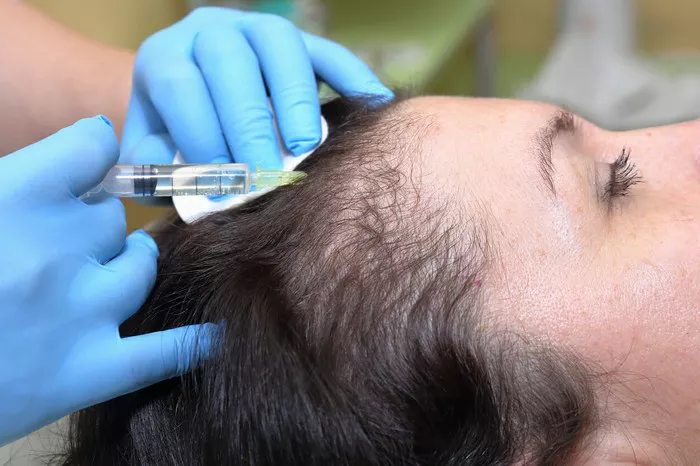Hair loss is a common concern for both men and women, but the conversation around it often revolves around male-pattern baldness. However, female hair loss is a significant issue that can affect women of all ages. There are various causes for hair loss in women, ranging from hormonal changes to genetics and lifestyle factors.
I. Causes of Female Hair Loss
Hormonal Changes: Hormonal fluctuations, especially during pregnancy, childbirth, and menopause, can contribute to hair loss in women. The imbalance of hormones can affect the hair growth cycle, leading to shedding.
Genetics: Just like men, women can inherit a predisposition to hair loss. If female relatives on either side of the family experienced hair loss, it increases the likelihood of a woman facing the same issue.
Medical Conditions: Certain medical conditions, such as thyroid disorders, autoimmune diseases, and polycystic ovary syndrome (PCOS), can cause hair loss in women. Treating the underlying medical issue is crucial in addressing the hair loss.
Nutritional Deficiencies: Inadequate intake of essential nutrients, such as iron, zinc, and vitamins, can impact hair health. A well-balanced diet is essential for maintaining healthy hair.
Stress and Lifestyle Factors: Chronic stress, lack of sleep, and a high-stress lifestyle can contribute to hair loss. Finding ways to manage stress and adopting a healthy lifestyle can positively impact hair health.
II. Hair Transplant Options for Women
While hair transplants are often associated with male-pattern baldness, they are also a viable option for women experiencing hair loss. Hair transplant procedures have evolved, offering solutions to restore hair density and confidence in women.
Follicular Unit Extraction (FUE): FUE is a minimally invasive hair transplant technique that involves extracting individual hair follicles from the donor area and implanting them into the recipient area. It leaves minimal scarring and allows for a more natural-looking result.
Platelet-Rich Plasma (PRP) Therapy: PRP therapy involves injecting a concentration of a patient’s own platelets into the scalp to stimulate hair follicle growth. This non-surgical option can be effective for women with early-stage hair loss.
Strip Harvesting (FUT): FUT involves removing a strip of skin with hair follicles from the donor area and transplanting it to the recipient area. While it may leave a linear scar, it can be a suitable option for women with larger areas of thinning hair.
Robotic Hair Transplantation: Advanced robotic systems have been developed to assist in the precision of hair transplant procedures. These systems use artificial intelligence to select and transplant hair follicles, ensuring accuracy and efficiency.
III. FAQs on Female Hair Loss and Hair Transplants
1. Are hair transplants for women as effective as those for men?
Yes, hair transplants can be effective for women, addressing various types and causes of hair loss.
2. Is there an age limit for undergoing a hair transplant?
There is no strict age limit, but it is essential to consider the stability of hair loss before opting for a transplant.
3. How long does it take to see results after a hair transplant?
Results vary, but most individuals start seeing noticeable improvements after several months.
4. Are there non-surgical options for treating female hair loss?
Yes, non-surgical options like PRP therapy and topical medications can be effective for some women.
5. Can hormonal imbalances be treated to stop hair loss?
Yes, addressing hormonal imbalances through medical intervention can help manage hair loss in many cases.
6. Is hair transplant surgery painful?
Local anesthesia is used during the procedure, so patients typically experience minimal pain. Postoperative discomfort can be managed with prescribed medications.
7. How long do the results of a hair transplant last?
Hair transplant results are usually permanent, as transplanted hair follicles are resistant to the factors that cause hair loss.
8. Are there any risks or side effects associated with hair transplant surgery?
While rare, potential risks include infection, scarring, and temporary shock loss. Consulting with a qualified surgeon can help mitigate these risks.
Understanding the causes of female hair loss and exploring available hair transplant options empowers women to make informed decisions about their hair health. Whether choosing a surgical or non-surgical approach, consulting with a qualified healthcare professional is crucial to achieving the desired results and restoring confidence in women facing hair loss.

